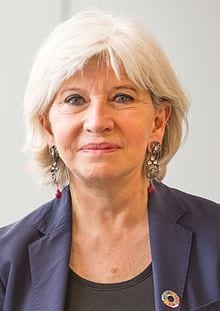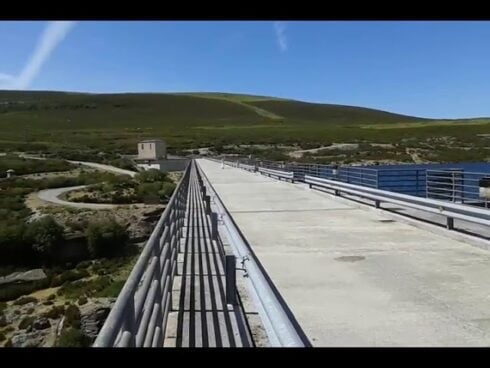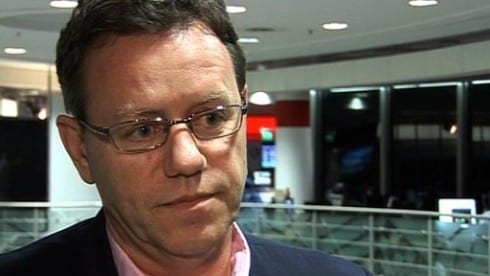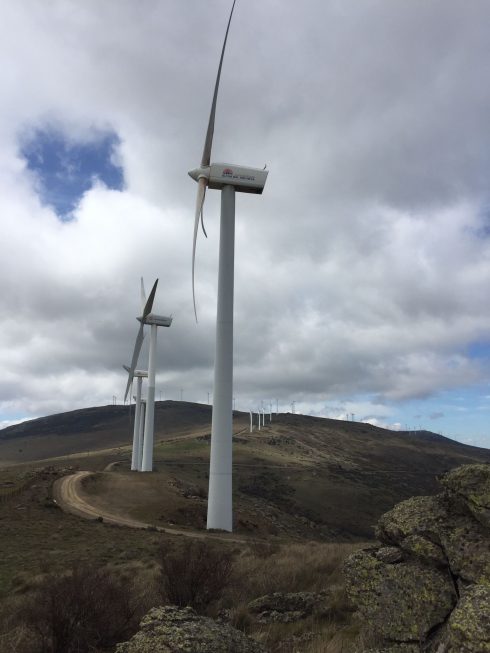
SPAIN has been urged to contribute more to ending the global reliance on carbon-emitting power sources such as coal and oil.
The European Climate Foundation said Spain was falling behind other countries in terms of switching to low-carbon sources like renewables and nuclear.
Director Laurence Tubiana said Spain ‘needs to go to the G20 meeting in July, with a plan in hand on how to decarbonise the economy, like most other world powers have’.
Strategies to move economies away from reliance on carbon-emitting power sources were a part of the Paris Agreement.
The European Commission has asked EU member states for the same by 2018.
“It is imperative that Spain promotes a joint national exercise with all the actors involved in decarbonisation, so what has been agreed will happen,” said Tubiana, who warned against conflict of interests that could ‘paralyse everything’.












I think that the antropogenic climate change do not exist.
We have all the power we need coming daily, for free, from the sun. Storage issues are being solved by Tesla, who else, as they are building a gigafactory in the US which will double total global production capacity from a single site. They also plan on building at least another three worldwide and there will be no rare earth bottlenecks.
PV panels continue to improve in efficiency and fall in cost at the same time with the rate of improvement now allowing them to provide the cheapest industrial production of power when compared to all other methods (fossil, nuclear et al). Domestic production is on a similar trajectory.
The reason we don’t have PV panels being installed on our roofs today is because the government decided it would be better to protect the established monopoly (who’s infrastructure we have already paid for in the form of grants, subsidies and bills) to keep open the revolving door to executive jobs for life after politics along with the justification that the existing infrastructure wouldn’t be able to cope with the huge spike in domestic feed in production. So they essentially made it illegal.
Utility islanding is coming to a codigo postal near you and when it does civil disobedience will soon follow.
I fear that you are victim of a delusion.
<>
https://ourfiniteworld.com/2017/01/30/the-wind-and-solar-will-save-us-delusion/
Happily not. I have room for 50 panels measuring 34.6 x 51.9 at an efficiency of 22% which SolarCity or other local Andalucian installers could provide if the government removed the restrictions and political support for the established cartel.
That is more than enough to power my home 24/7 and sell the surplus back into the network. Alternatively I could run a cable over to my neighbour, who has less roof space, to charge his batteries for which I would expect a pro rata contribution towards the infrastructure costs (panels, inverter, cables etc) which would be far below what Endesa charge per kw/h. With that extra supply he would also be able to go off grid so Endesa would lose two customers at a stroke and we would both have much cheaper electricity 24/7 365 days of the year.
As efficiency improves the total space required for the same output falls or the total power produced from a given area increases. A 2% increase in efficiency from 18% to 20% doesn’t look like much in absolute terms but it is a relatively large jump.
That is why the barriers are in place, so that the whole population pays high standing charges and inflated unit costs along with taxes, for a product we can get elsewhere for less in order to support the power cartel, the treasury, post-politics careers and those without sufficient space. And only the latter is justifiable.
But the time will come, I predict within five years, when the panels become so cheap and efficient that anything else makes no economic sense because the volumes being produced in 2017 alone, of panels at 20% +-2%, are at an all time high and forecasted to equall or exceed all previous production.
It’s obvious you have the same mental capacity as Donald Trump Anselmo. To deny the blindingly obvious, falls into his philosophical attitude to inconvenient truth.
Boulder: Bang on!
stefanjo, if you had the mental capacity of Donald Trump you would not be making comments on OP, you would be using twitter.
As always, it’s the established monopolies clinging to their unwarranted, immoral profits that stand in the way of alternative energy. A small addition to Boulder’s points, is the fact that manufacturing costs of PV panels has dropped by 85%. THAT is massive and must really be putting the wind up the legal thieves of our light.